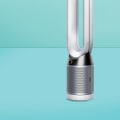Air purifiers are designed to trap dust, pollen, and other contaminants that are floating in the air we breathe. This can be effective in eliminating the source of allergies, but it is important to note that they should not replace prescription drugs. Air purifiers work to reduce the amount of pollen in the air, which should help relieve allergy symptoms. However, results may vary from person to person.
The exact operation of an air purifier will depend on the size of the room, the local climate, the model of the purifier, and your own personal health. It is important to be aware of bold claims from manufacturers, as Honeywell got into legal trouble for exaggerating the effectiveness of its air purifiers. The right air purifier can also remove irritants such as smoke, odors, and VOCs (volatile organic compounds). These are not allergens, but they can make breathing difficult.
So if these are the things that bother you, then an air purifier can really help with your allergies. For filters used in residential air cleaners, MERV ratings range from 7 to 12, and the higher number indicates more effective pollutant capture. Over the years, the Federal Trade Commission has taken action against several manufacturers of air purifiers for baseless allergy relief claims or for announcing that their devices removed virtually all impurities from the indoor air that people breathed. The company says its air purifier is also more energy efficient because it uses electricity to capture germs instead of forcing air through a filter at high fan speeds. Or, in other words, how long it will take for that machine to move all the air in the room through the filter once. While medications for allergies and asthma can help relieve symptoms and prevent reactions, air purifiers can help eliminate the source of symptoms to begin with.
If you're allergic to pollen and have seasonal allergies, an air purifier can help you a little. It takes time for all the air in the room to circulate through the purifier, so odors can stay for about an hour. For example, activated carbon filters will be better at removing odors but not as good at removing pollen from the air. Research shows that filtering air can help remove harmful particles from indoor spaces, especially allergens, smoke and mold. There is some evidence that air purifiers can help reduce symptoms by cleaning the air around you, especially by eliminating triggers for asthma and allergies such as dust mites, pollen and mold spores. When I asked Ted Myatt, an environmental microbiologist who works at the University of Rhode Island and consults for Honeywell if I would feel healthier after using a household air purifier for an extended period of time he covered. According to the CDC, the best air purifiers can also give an extra boost to air cleanliness as they “can help reduce airborne pollutants including viruses in a home or in a confined space”.
An air purifier can act as a supplement to a filter and other strategies to help remove particles such as pollen and smoke. The Coway Airmega 250 Air Purifier combines a four-stage filtration process (including a pre-filter and a deodorization filter) to remove 99.99% of airborne particulates (including 99.98% of SARS-CoV-2 virus depending on brand). If you don't feel a positive effect on your allergy symptoms after using an air purifier for a month or two you may want to reassess its location in the room (for example moving it closer to your bed or sofa or moving it away from a door or window).



